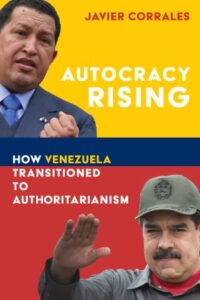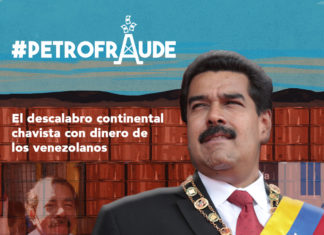The 2024 presidential elections and 2025 regional, local and legislative elections present a crucial opportunity for the reinstitutionalization of Venezuela’s democracy and rule of law and for the normalization of its relations with the international community, say civil society organizations.
The current crisis reached critical dimensions after the 2018 presidential election lacked legitimacy in the eyes of national and international stakeholders. The upcoming elections provide an opportunity for a significant change in direction. The international community should demand that Venezuela uphold the right to political participation and free and fair elections, the groups add, stating that they are deeply concerned by recent developments that pose a threat to the legitimacy of the upcoming electoral process.
 “Under Nicolás Maduro’s autocratic rule, millions of Venezuelans have fled from state-sponsored human rights abuses, political chaos, and catastrophic economic decline,” said Rep. Joaquin Castro, Ranking Member of the House Foreign Affairs Subcommittee on the Western Hemisphere and a board member of the National Endowment for Democracy (NED). “Continued U.S. support for the U.N.’s Fact Finding Mission will expose the regime’s crimes, hold the perpetrators accountable, and provide humanitarian aid to those currently suffering while working to prevent future suffering through a peaceful, democratic transfer of power.”
“Under Nicolás Maduro’s autocratic rule, millions of Venezuelans have fled from state-sponsored human rights abuses, political chaos, and catastrophic economic decline,” said Rep. Joaquin Castro, Ranking Member of the House Foreign Affairs Subcommittee on the Western Hemisphere and a board member of the National Endowment for Democracy (NED). “Continued U.S. support for the U.N.’s Fact Finding Mission will expose the regime’s crimes, hold the perpetrators accountable, and provide humanitarian aid to those currently suffering while working to prevent future suffering through a peaceful, democratic transfer of power.”
The Maduro regime’s announcement last week that it has barred the presidential candidacy of Maria Corina Machado (the leading candidate in the polls) was—or should have been—a turning point for U.S. policy toward Venezuela, writes Elliott Abrams, a Senior Fellow at the Council on Foreign Relations.
The United States should abandon hope that Maduro will negotiate a free election or will leave power if he loses the vote. His criminal activities—including theft of public funds, killings of opposition figures, exile and jailings and torture of opposition leaders, illicit gold trafficking, human trafficking, drug trafficking, and support for the Colombian guerrilla groups—mean that he knows leaving power may mean long years in prison, and he will never voluntarily risk it, adds Abrams.
“The humanitarian catastrophe, the collapse of our economy, the migration, rampant corruption, will not stop unless we defeat and dismantle that criminal tyranny, the narco-state that has been established in Venezuela,” Machado told the Atlantic Council (above).

Connectas
Yet Mr. Maduro, who has embraced Vladimir Putin’s Russia as an ally, has openly declared he is indifferent to international criticism, The Washington Post adds:
The Biden administration has no choice but to back up the promise that it made from the beginning of its new policy — and that the State Department reiterated June 30 in response to the crackdown on Ms. Machado: “to hold accountable those who seek to thwart the will of the Venezuelan people.” At a minimum, that should mean ruling out any more sanctions relief until all opposition candidates have their political rights restored, the regime has taken verifiable steps toward the establishment of a new, credible National Electoral Council and good-faith talks with the opposition have resumed.
Bloomberg’s Fabiola Zerpa and Amherst College’s Javier Corrales – author of Autocracy Rising (above) – discuss the Venezuelan leader’s bleak record as the country prepares for 2024 elections, in LatAm in Focus: A Decade of Nicolás Maduro.
The Hudson Institute recently hosted a discussion with Venezuelan pro-democracy leader Leopoldo López (below) on the situation in Venezuela, the growing alliance between authoritarian regimes, and the prospects for democracy in Venezuela and beyond.







